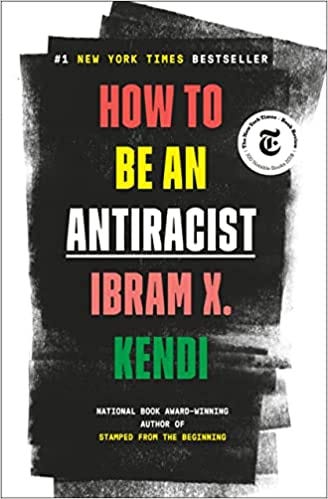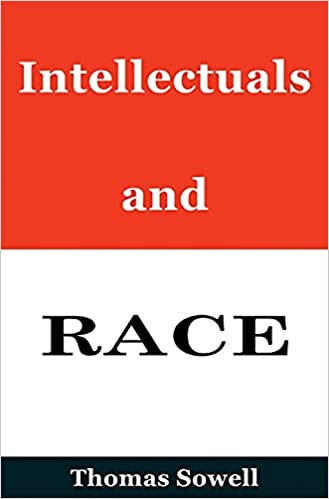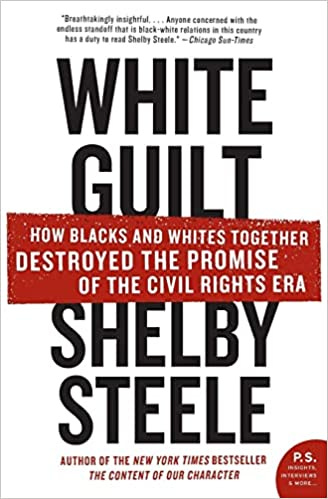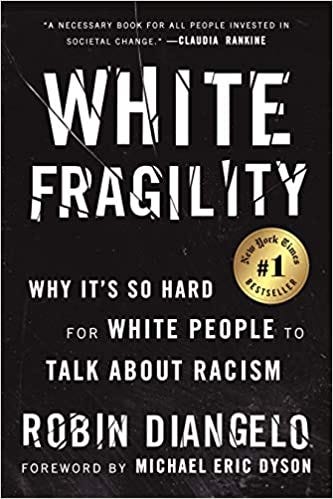Antiracism Is Good News at Jesuit High Schools
Parents pay upwards of $20,000 annually for the political indoctrination of their children by Jesuit educators intent on transforming them into antiracists.
Parents looking to a Jesuit school as an alternative to the Marxist cultural indoctrination found in public schools ought not assume that a Catholic institution is immune from the temptation to use children to advance a political project.
If that Catholic institution is a Jesuit one, the manipulation of children will take place under the pretense that Catholic Social Teaching – a rich and longstanding body of doctrine – will remain uncorrupted even as it is willfully infused with ideas rooted in Critical social justice theories.
Although each of the Jesuits’ secondary schools retains a certain autonomy, the pressure to conform to the prevailing culture’s social justice ideology is substantial. Like any school, a Jesuit institution hires educators formed by our postmodern Academy, many of whom credulously accept its specific vision of what constitutes justice, a worldview that, being essentially totalitarian, brooks no dissent.
Unlike any school, a Jesuit school is fortified with Catholic Social Teaching. This fact ought make a self-confidently Catholic institution especially wary of weaving into its teaching a secular ideology that, rejecting the imago Dei, perceives individuals first and foremost as identities involving race, ethnicity, gender, and sexual orientation.
Public schools maintain diversity bureaucrats at a central district office. A Jesuit high school campus, in contrast, has its own diversity commissar on site, directing the incorporation of the basic precepts of Critical social justice theories, assisting believers among the faculty, making converts, and noting the heretics.
One of these precepts is antiracism.
The gospel of Ibram X. Kendi, author of 2019’s How to Be an Antiracist, shapes the updated profile of current graduates at many a Jesuit high school: along with being “open to growth,” “intellectually competent,” “religious,” and “loving,” students now graduate dedicated to the work of antiracism.

Springing from Critical race theory, antiracism is the Academy’s embodiment of what the Jesuit profile refers to as “doing justice.” Its adoption by Jesuit schools demonstrates contempt for the families of all Jesuit students and for the alumni who generously donate to their alma maters.
Racism is an addiction, according to Kendi, and the Good News of antiracism is the remedy. Antiracist educators, focused on identities, believe their white students have been raised by racist parents who perpetuate racism through their progeny. Jesuit schools are conducting an intervention to turn those racist children into antiracists, an intervention conveying to students of color that they are victims who must be protected from the dominance of whiteness.
Fr. Christopher Devron, S.J., while he was president of Fordham Prep, stated in an article for America magazine in 2021 that “Catholic Social Teaching demands that we teach students what racism is and why and how to oppose it.”
Not quite. Catholic teaching does not “demand” that the “we” who “teach students” be antiracists. Nor does Catholic teaching dictate to Catholics “how” to oppose it.
Antiracism entails both a single acceptable perspective about what constitutes racism today (racism is systemic and your personal racism is primarily unconscious) as well as an approved means for dismantling it. Its advocates engage in groupthink: disagreement and debate are not part of an intervention.
In order to graduate students devoted to justice, the Jesuits do not have to join the woke cultural zeitgeist. But they have.
As the order did when they purchased and sold slaves in Maryland and elsewhere 200 years ago, the Society of Jesus once again demonstrates a knack for conforming to the culture precisely when it ought to be countering it.
Responding to the passions generated during the 2020 summer of George Floyd and Black Lives Matter, the Jesuit Schools Network quickly aligned its schools with the policy prescriptions of the secular Academy by making substantive changes in its official pedagogical document, Our Way of Proceeding: Standards and Benchmarks for Jesuit Schools in the 21st Century, a document barely five years old.
The Network, borrowing extensively from Critical theories, completely rewrote and expanded the document’s Domain 5, creating standards that formally recognize as core values for Jesuit schools the culturally-approved identity mantras of Diversity, Equity, and Inclusion, all residing within an Antiracist framework (DEI+A).
Domain 5’s revised Standard 13.2 states that a Jesuit secondary school program “includes anti-racism/anti-bias training for board, faculty and staff, and students.” As Fordham Prep puts it, a Jesuit school’s mission “to form students to recognize God’s dignity within each person” is a mission that “necessarily includes becoming anti-racist.”
The ease with which a Jesuit school conflates the image and likeness of God with a thoroughly political ideology deserves its own moment of silence.
San Francisco’s St. Ignatius Prep declares that a Jesuit graduate’s call to be “open to growth” is an invitation “to combat systemic racism” and “deeply engage in the work of anti-racism.”
Antiracism is the Good News too at Phoenix’s Brophy Prep, where a “commitment to anti-racism” is a qualification for employment, and whose department chairs oversee the implementation of “anti-racism structures in curriculum and classroom practices.”
It is the Good News at Boston College High School, whose four-member DEI Team serves a school community on its “journey to adopting an antiracist culture,” and whose educators have participated in a number of National Anti-Racism Teach-Ins.
It is the Good News at Los Angeles’ Loyola High School, whose Office of Equity and Inclusion sponsors cultural consciousness training for colleagues “to hone our relational skills as they pertain to anti-bias or anti-racist work” and operates A Brave Space for students to express themselves regarding antiracism issues.
It is the Good News at Brebeuf Jesuit in Indianapolis, where its Center for Equity and Inclusion provides professional development opportunities “to equip teachers with tools to further the conversation about anti-racism and equity.”
It is the Good News at St. Louis University High School, whose ten-member Equity and Inclusion staff oversees a variety of affinity groups, including the school’s Anti-Racist Coalition.
The Antiracist Supports Racial Discrimination
Let’s be forthright about what antiracism is and is not. It does not mean being “against racism.” The term itself is a linguistic deception obscuring the racism within antiracism.
The focus of antiracism is racial equity, and to ensure such equity, racial discrimination becomes a good. Hardly wishing to advertise the truth about antiracism, Jesuit schools remain inclined to equivocate, to dilute, or redefine the truth through bland bureaucratic jargon.
Similarly, being honest about the Critical social justice term equity is rare.
Equity is not about “being fair.” Were “being fair” the antiracist meaning of equitable, weaving into Catholic teaching components of Critical theories would be redundant. Catholic institutions already have in the Catechism and the Gospels the fundamental “How To” guidebooks for all things just and equitable.
In the postmodern language of Critical social justice, equity supersedes equality. Both equality before the law and equality of opportunity are considered “white” Enlightenment concepts for maintaining the dominant social group’s advantages and privileges while granting the illusion of equality to those social groups marginalized by whiteness.
Equity requires equality of outcomes, nothing less. Training in the cardinal virtues does not guarantee any result, but antiracism must.
The apostle Kendi defines his terms tautologically, as unfalsifiable true facts. An antiracist is, he says, a person actively supporting “an antiracist policy” or expressing “an antiracist idea.” A racist does the opposite – favors racist policies and expresses racist ideas.
The circularity of Kendi’s definitions, however mockable, emphasizes the power that puts antiracist groupthink into practice. Since anyone not actively antiracist is – by Kendi’s definition – racist, then only antiracists can propose policies and profess ideas that will, as Fr. Devron says, “teach students what racism is and why and how to oppose it.”
Kendi believes “all cultures in all their differences” must be viewed “as equals,” and that “nothing is behaviorally wrong or right…with any of the racial groups.” Any disparity between two racial groups is ipso facto evidence that racist policy has produced racial inequities through racist discrimination.
There are no other possible reasons for disparities regarding academic performance, incarceration, housing, finances, employment, health, or any other matter. To suggest that study habits, the stability of family life, the amount of neighborhood crime, or any other pathologies or patterns may better explain differences involving cultures is, for Kendi, tantamount to declaring that one group is inferior to another and — naturally — racist, a conclusion silencing further discussion.
How then is this racism to be opposed? Antiracist policies, which produce racial equity through race-based discrimination.
“The only remedy to racist discrimination is antiracist discrimination,” says Kendi. “If racial discrimination is defined as treating, considering, or making a distinction in favor or against an individual based on that person’s race, then racial discrimination is not inherently racist.”
The “logic” that antiracist Jesuit educators consider “intellectually competent,” into which students are indoctrinated, and for which parents and alumni pay leads to this core antiracist belief: racial discrimination is to be encouraged when its purpose is to achieve racial equity.
If you believe that racial discrimination is wrong and want your children to believe that, then you — and they — are not antiracist. “The defining question,” says Kendi, “is whether the discrimination is creating equity or inequity. If the discrimination is creating equity then it is antiracist.”
In looking-glass fashion, antiracism inverts racism.
As Kendi puts it, “‘Racist’ and ‘antiracist' are like peelable name tags that are placed and replaced based on what someone is doing or not doing, supporting or expressing in each moment. These are not permanent tattoos.
“No one becomes racist or antiracist,” he says. “We can only strive to be one or the other. We can unknowingly strive to be a racist. We can knowingly strive to be an antiracist. Like fighting an addiction, being an antiracist requires persistent self-awareness, constant self-criticism, and regular self-examination.”
Kendi is an either/or preacher of the antiracist word, which ought be a warning to priests who consider themselves practiced in the art of blending opposites.
The Good News Keeps Heresy at Bay
Because an insufficient supply of overt racist behaviors exists in contemporary America, antiracists have mainstreamed the useful idea that racism is more a phenomenon of the unconscious than the conscious, existing disguised within structures and systems. Claiming you are “not racist” exposes, as Kendi explains, your lack of awareness.
This useful idea — that racism in 21st century America exists “within systems” nurtured by the unconscious biases of white people — is always asserted as fact when it is, in fact, merely an ideological position. It is certainly a proposition that merits its own Lincoln-Douglas debates, but antiracists covet “systemic racism” as an all-purpose explanation that only racists would dispute. You do not give a platform to racists, do you?

Fr. Devron, now president of Manhattan’s Regis High School, claims that, with regard to this useful idea, Critical race theory is similar to Catholic Social Teaching. “White people don’t get a moral pass by simply refraining from overtly racist acts,” says Fr. Devron. “Rather, they must examine racial biases within systems; reflect on how they participate in and benefit from these biases; and then take deliberate action to change them.”
Notice that “racial biases within systems” and your complicity with them are givens. Would it be possible, before reflecting and acting, to investigate whether and to what degree any specific system functions today as an oppressive product of racial biases? Of course not. What’s to investigate? We’re an antiracist educational institution, after all. We already know what racism is and why, and now we’ll tell you how to oppose it.
Phrases such as “systemic racism” and “institutional racism” have become shibboleths to stymie inquiry and exclude the contrary ideas of other people who have thought and studied for decades about issues involving race and culture.
This is why on the Jesuit websites where you find racial justice resources by Kendi and Robin Diangelo, author of White Fragility, and other trendy antiracists, you will not discover diversity of thought.
Heretics like Glenn Loury, Thomas Sowell, Shelby Steele, Walter Williams, Robert Woodson, and others who counter the prevailing cultural orthodoxy and its particular social justice prescriptions are, it seems, indexed as forbidden at Jesuit schools.
The Jesuits, weaving Catholic teaching with Critical theories as a “both/and” proposition, have embraced what Shelby Steele refers to as “poetic truth” in his book Shame: How America’s Past Sins Have Polarized Our Country.
Poetic truth works by “moral intimidation rather than reason,” says Steele. Poetic truth “disregards the actual truth in order to assert a larger essential truth” that supports an ideology.
The poetic truth that “blacks are still held back from full equality by ongoing ‘structural’ racism,” says Steele, “carries more authority than the objective truth: that today racism is not remotely the barrier to black advancement in American life that it once was.”
Belief in poetic truth provides a shield of moral righteousness but, since it avoids reality, such belief does nothing to eradicate the genuine causes of racial inequities. These causes, Thomas Sowell reminds us, are “numerous and complex (and) must be confronted in their complexity, if we are seeking the truth, rather than trying to promote a vision or an agenda.”
The Jesuits demonstrate little interest in discernment of actual causes and even less in the discomforting reality that nothing whatsoever the Society does will alleviate the moral imperative that individual human beings have agency and are responsible for the choices they make.

Glenn Loury, an economist and social scientist at Brown University, observes that “socially mediated behavioral issues lie at the root of today’s racial inequality problem. They are real and must be faced squarely if we are to grasp why racial disparities persist.”
Those who make the structural racism argument “are, in effect, daring you to disagree with them,” says Loury. If you do, you will be accused of being a racist, of believing that “something is intrinsically wrong with black people if you do not attribute pathological behavior among them to systemic injustice.”
Pointing the accusing finger at systemic racism, according to Loury, asserts “shadowy causes that are never fully specified, let alone demonstrated. We are all just supposed to know that it’s the fault of something called ‘structural racism,’ abetted by an environment of ‘white privilege,’ furthered by an ideology of ‘white supremacy’ that purportedly characterizes our society. It explains everything.”
Jesuit antiracism training safeguards students from the cultural heresy of thinkers like Steele, Sowell, and Loury. It guides white students out of the shadows of addiction into the light, revealing the implicit biases and privilege by which they oppress others. Such training also communicates to students of color that their oppression has robbed them of agency, that their achievements in life cannot actually occur without the antiracist transformation of their peers.
Say Three Hail Marys as You Donate Your Racist Money
We who are alumni of Jesuit schools are being called by the Society of Jesus to confront our racist educations and our subsequent racist lives in the antiracist confessionals of today’s all-too-woke Society of Jesus.
Fr. Devron, for example, declares structural racism exists “throughout society at large as well as in Catholic Jesuit education.” Similarly, Gonzaga Prep in Spokane recognizes “the sin of racism as a historic, systemic, and persistent reality in our nation, the Spokane community, the Catholic Church, the Society of Jesus, and Gonzaga Prep.”
The relentlessness of our addiction to racism explains why the parental “error” of raising children to be “color-blind” must be corrected. Parents may believe they simply teach their children not to judge people based upon superficial characteristics, but antiracists know better.
Any such parent, “by ostensibly failing to see race, fails to see racism and falls into racist passivity,” says Kendi. Because such color-blind ignorance veils the reality of systemic racism, Jesuit educators aim to correct this parental error by immersing students in the font of antiracism, sacramentally essential for them “to recognize God’s dignity within each person.”
Tuition-paying racist parents and donating racist alumni answer the call to advance Jesuit’s antiracist mission whenever bills and phonathons arrive. Remarkably, monies earned in a free market capitalist economy remain willingly received at the antiracist school even though, as Kendi instructs, “Capitalism is essentially racist; racism is essentially capitalist.”
Racism (like capitalism) is, then, a crucial necessity for the antiracist, be the antiracist working within the Human Resources Departments of every Fortune 500 company, the mushrooming DEI+A consulting industry, or the leadership of a Jesuit university or high school.
The confident assertion of its systemic existence is the means by which adults manipulate the emotions of their impressionable students, most of whom will naturally be horrified to learn — as they must learn during antiracist struggle sessions (aka “courageous conversations” and “antiracist examens”) — that their whiteness is a living symbol of their privilege and a burden to their brothers and sisters of color.
As James Lindsay at New Discourses (an online resource for all things involving Critical theories) explains, whiteness supplies a self-interested socially constructed system of power that, “whether by intention or merely by the corrupting influence of privilege, … defines and maintains white dominance and the oppression of people of color.”
Although this type of race essentialism is antithetical to Catholic teaching and belief in the imago Dei, the Society of Jesus cannot resist it.
Jesuits West province through its Collaborative Organizing for Racial Equity has been offering “Wrestling with Whiteness” training for school and parish leaders in order to “organize and move other white people in the work of dismantling white supremacy.” Created by “white-identifying organizers” (yes, this is quoted accurately), this training aims to “wrestle with white dominance culture and implicit bias” utilizing “Ignatian spirituality as a key method for helping us discern our relationship to whiteness and our call as white folks.”

Critical theorists and antiracists do not seek to persuade anyone that their worldview is the truth. It is “their truth,” which is quite sufficient for nurturing feelings — shame and guilt and anger and bitterness — that advance the reengineering of the psyches of your children.
Kendi says that antiracism involves a “radical reorientation” of the consciousness. He is not wrong.
Kendi himself has proposed an antiracist amendment to the Constitution that enshrines his two guiding principles: “Racial inequity is evidence of racist policy and the different racial groups are equals.” The amendment would establish a Department of Antiracism composed of “formally trained experts on racism” who would monitor, investigate, and use “disciplinary tools to wield over and against policymakers and public officials who do not voluntarily change their racist policy and ideas.” Perhaps those experts dishing out the discipline will have been trained at Kendi’s own Center for Antiracism Research at Boston University.
Discerning readers of George Orwell or Alexander Solzhenitsyn will recognize the fundamental implications that underlay antiracism. Equity by race must be compelled. It is, at its root, as unjust – and totalitarian – as compelled inequity.
“The problem of race has always been at its core the problem of power,” says Kendi, “not the problem of immorality or ignorance.” Were the “problem of race” treated instead as a fundamentally moral issue, the emphasis at a Jesuit school would be on the Gospels and the training of students in the cardinal virtues.
The fashionable Jesuit “core values” of diversity, equity, and inclusion reveal the “problem of race” as every secular institution perceives it — the quest for “justice” through the power of identity politics filtered, at Jesuit, with just enough of the Gospels to demonstrate that Kendi is not the sole author of Good News.
Students viewed as identities become political guinea pigs in a social experiment to assuage the consciences of adults in a religious order ashamed of its white slave-owning past and convinced that this legacy somehow explains racial inequities today.
The power the past maintains for the Society of Jesus does not excuse choosing to diminish the agency of any children, regardless of background. Students at Jesuit schools are not always angels, but not one should ever be thought of by their educators as either a victim or a victimizer.
The abuse of children to mend the broken psyches of weak adults is an all-too-common theme in postmodernity.
Fallen as we are, this ought be no surprise.



